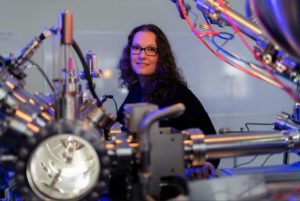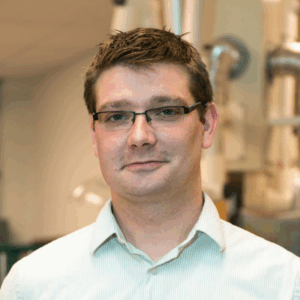Exploring ancient submerged landscapes, developing materials for a sustainable future and decoding the molecular complexity of life are the focus of new Flinders University research projects that have won valuable funding support from the Australian Research Council (ARC).
Three Flinders research teams have obtained more than $4m in funding through the latest round of the Linkage Infrastructure, Equipment and Facilities (LIEF) scheme that will boost marine, materials and molecular research.
The ARC LIEF scheme provides funding for research infrastructure, equipment, and facilities to enable cooperative use by universities and industry.
The awarding of three of this round's Linkage grants to Flinders highlights the real-world importance and impact of the University's research, says Deputy Vice-Chancellor (Research) Professor Raymond Chan.
"These innovative projects will boost marine, materials and molecular research, enabling our research teams to tackle some of the most pressing challenges in technology, environment, and industry," says Professor Chan.
"The ARC LIEF program is especially important because it connects our researchers with partners who can help develop and apply these advanced systems in real-world settings, accelerating innovation and impact."
The ARC LIEF Grant funded projects are:

Professor Sarah Harmer, College of Science and Engineering, $1,850,120
An SA in-situ scanning electron microscopy facility for advanced materials
Professor Harmer says that this project aims to establish Australia's first open access in-situ scanning electron microscope with collective Raman.
"The new platform will allow us to study how materials behave under different conditions, such as extreme temperatures, pressure, and chemical environments. It combines advanced imaging with Raman spectroscopy to show both the structure and chemical changes of materials as they happen. These insights will help design better batteries, solar cells, and other advanced technologies for industries like manufacturing, mining, and defence."
ARC Project LE260100120: Lead chief investigator Professor Sarah Harmer and Professor Mats Andersson; Professor Gunther Andersson; Associate Professor Jianfeng Mao; Professor Colin Raston AO FAA; Professor Krasimir Vasilev; Associate Professor Matthew Griffith; Professor Colin Hall; Associate Professor Damia Mawad; Professor Marta Krasowska; Dr Christopher Gibson

Professor Justin Chalker, College of Science and Engineering, $1,799,000
Mass analysis facility for precision molecular science
Professor Chalker says this project will address a critical analytical gap in South Australia by establishing a high-resolution mass spectrometry facility.
"We will create a new facility that can identify and map molecules in incredible detail. It will help scientists understand what materials and biological systems are made of and how they work. This technology will support research in areas like sustainable materials, environmental cleanup, wine production, and brain science, leading to discoveries that benefit industry and the environment."
ARC Project LE260100060: Lead chief investigator Professor Justin Chalker and Professor Tara Pukala; Professor Michelle Coote; Professor Kerry Wilkinson; Dr Yee Lian Chew; Dr Cameron Shearer; Dr Witold Bloch; Associate Professor Stephen Bell; Associate Professor Bart Eijkelkamp; Dr Edward Robins
Dr John McCarthy, College of Humanities, Arts and Social Sciences, $450,603

Submerged environments survey and sampling suite
Dr McCarthy says the project will establish a 'submerged environments survey and sampling suite' that includes two marine geophysical sonar sensors and one marine geotechnical coring platform.
"Our project will create a new system to explore underwater environments. It combines advanced sonar technology to map the seabed in 3D and tools to look beneath the surface into hidden layers of sediment. A floating platform will then collect deep samples from these layers, helping us to uncover evidence of past climates and human activity. This will open new opportunities for archaeology and environmental science in Australia's oceans, rivers, and lakes."
ARC Project: LE260100176: Lead chief investigator Dr John McCarthy and Associate Professor Jonathan Tyler; Dr Alexander Francke; Professor Jonathan Benjamin; Dr Chelsea Wiseman; Professor Ian Moffat; Professor Sean Ulm; Professor Julien Louys; Associate Professor John Tibby; Dr Mark de Bruyn; Associate Professor Graziela Miot da Silva; Mr Mathieu Bestille
The latest 25 ARC Linkage grants worth $34 million in Australian Government funding were announced by ARC Chief Executive Officer, Professor Ute Roessner.
"This investment gives researchers access to specialised equipment and large-scale infrastructure that no single institution could reasonably deliver alone. By pooling resources, they create opportunities for progress that would not otherwise be possible," Professor Roessner says.
"These new projects will enhance Australia's research capability in areas of national priority, including sustainable manufacturing, quantum technology, and advances in diagnostic tools. They will help ensure Australia remains a leader in collaborative, world-class research."






